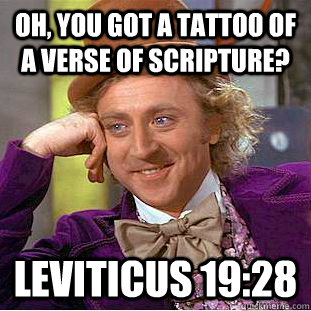 I was asked today about the seeming disparity between the genealogy of Matthew and Luke, both of whom provide a different father’s name for Joseph the (supposed) father of Jesus: Jacob (Matthew 1.16) and Heli (Luke 3.23).
I was asked today about the seeming disparity between the genealogy of Matthew and Luke, both of whom provide a different father’s name for Joseph the (supposed) father of Jesus: Jacob (Matthew 1.16) and Heli (Luke 3.23).
There are two basic proposals:
1) That both genealogies refer to Joseph, with Matthew’s account intended for Jesus place as heir to the throne of David and Luke’s account intended for the actual biological lineage of Joseph.
2) Matthew is recording Joseph’s genealogy and Luke is recording Mary’s. This is supported by numerous early Fathers: Origen, Irenaeus, Tertullian, Athanasius, and Justin Martyr.
It has been suggested (in support of the second proposal) that Mary’s genealogy is given under the name Joseph (by Luke) because (A) women were not official heads in the genealogical records of the ancient world, though they could be mentioned (such as in Matthew) it was always in connection to a husband/father, and (B) that perhaps Mary was an only child (speculation, I know) and would be the family inheritor whose husband is then adopted as the heir for her. Under the second explanation it is usually pointed out that this would make Jesus the heir of David (and Abraham) by both adoption (through Joseph) and by birth (through Mary).
What are your thoughts?
Pages
-
Recent Posts
- My 2026 Society for Pentecostal Studies Proposal July 5, 2025
- Isaiah 14 and Ezekiel 28: Could It Be Satan? A Couple of Responses November 8, 2024
- Four Reading Tips for Graduate Students August 23, 2024
- Four Reasons I Embrace Online Instruction as a Theological Educator July 7, 2024
- Five Reasons Pentecostals Should Read Karl Barth July 6, 2024
Tag Cloud
- baptism in the Holy Spirit
- Bible
- Biblical hermeneutics
- Biblical Interpretation
- books
- Christ
- Christ Jesus
- Church
- creation
- David
- God
- Hermeneutics
- history
- Holy Spirit
- Humor
- Jesus
- Joshua
- Judges
- Kings
- Life
- Literary
- literary interpretation
- literature
- Lord
- Love
- Matthew
- Missions
- Old Testament
- pastor
- Paul
- Pentecostal
- Pentecostalism
- pneumatology
- Preaching
- Psalms
- Samuel
- Saul
- Sermon
- Society for Pentecostal Studies
- Spirit
- Theology
- translations
- Trinity Bible College
- women
- women in ministry
Archives
Categories
Meta








Changing Media Living Message
Perhaps some examples of what I am talking about might be helpful with regard to the changing media of Scripture:
To be clear, what I am NOT stating is that somehow in altering the message we have automatically been unfaithful to the One who has given us this testimony of grace. The Spirit enlivens the text to bring about preaching, teaching (commentaries/lectures), translations, and canon. The retelling of the story of Jesus in preaching might be yet more faithful to the intent of our Lord in the moment of preaching than in simply reading the original language in the study.
Let me go one step further: the message of Scripture is altered when it is applied by the illumination of the Spirit to us. The words are driven home in different ways than when read. Some facets are illuminated while others remain shrouded.
And still further: the obedience of the message alters the message by not simply rote mimicry, but by faith-filled Spirit enabled listening and following. And this is the will of God for us. It is true to His intent for us in this moment, even while altering the original media form. Indeed, His word is living and active! To those with ears to hear…